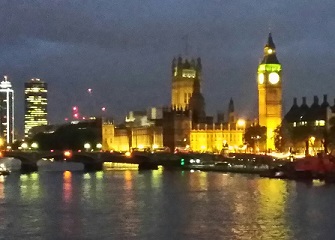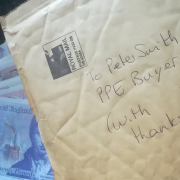How Competitive is UK Public Procurement?
A few weeks ago, the UK National Audit Ofice issued a report titled “Competition in public procurement – lessons learned”.
Unlike most of that organisation’s reports, it wasn’t looking at a specific project within one Department, but rather looked across central government at how procurement “competition” is working to help “support efficiency, innovation and quality in public services”. As the NAO says, when competition is lacking or ineffective, other safeguards need to be pursued otherwise the end results can be negative for the taxpayer.
But the overall findings given in the report do not paint a reassuring picture.
“Our review of competition in public procurement has found that government cannot show how well competition is working, and that the structures to encourage and support the use of competition are not all working as intended. Departments are unclear how to engage with the market before they let a contract, and do not consistently follow central guidance. For example, they routinely extend contracts rather than retendering them. The Cabinet Office provides guidance but does not take advantage of the data it collects to understand more about competition and gain further benefits”.
Extending contracts can be done for good reasons, but often it is just the lazy option. It may be happening more often because of a shortage of staff today but that is no excuse really. The need for some further analysis of this and action from Cabinet Office is even more pressing when you read this.
“Government procured 72% of its large contracts through frameworks in 2021-22 compared to 43% in 2018-19. Frameworks are designed for procuring common goods and services to allow departments to access economies of scale, but they are not always the way to achieve the best competition. Guidance produced by government states that where the goods or services are not common, a full procurement process should be undertaken.”
I found that genuinely shocking. I’m not surprised use of frameworks has risen, and used properly, they can be an excellent mechanism. However, to see that growth, almost a doubling of the number of contracts awarded in that manner over just 3 years, is quite shocking. It really does require some serious analysis as to why this has happened and what the consequences might be. NAO didn’t look at how often “direct awards” are made from frameworks unfortunately. Those awards are obviously much more anti-competitive than running a proper “call-off competition” from a framework (although even that does of course shut out non-framework participants).
The NAO makes some sensible recommendations, suggesting Cabinet Office should work with Departments to improve data and published information, drive better early market engagement and look more carefully at the frameworks issue. But there seems little doubt that competition in central government procurement has declined dramatically in recent years. If like me you believe that competition is THE most fundamental driver for value for money, as well as an essential element in the fight against fraud and corruption, that has to be worrying.
My feeling is that too many people, from politicians to senior budget holders to some commercial / procurement people themselves, are happy for frameworks to be used and contracts extended. That is both to save time and money on running procurement processes, and in many cases, so they can fundamentally choose which supplier they want to use and just put a veneer of governance around that. Occasionally that choice is driven by corruption , but usually it is people who genuinely think they are doing the right thing. But it is fundamentally anti-competitive.
There is no doubt that Gareth Rhys Williams, (government’s Chief Commercial Officer), Crown Commercial Services and the GCO have done some good work in terms of the “inputs” to government procurement. The focus on people and training, and the various impressive “playbooks” are evidence of this. But certainly from the outside, there is less evidence of the tangible outputs that have resulted from this work, other than somewhat spurious “savings” numbers that are produced.
Indeed, on that note, the NAO says this in the recent report. “Government monitors savings from individual frameworks by comparing their prices to estimations of prices charged by suppliers outside the framework”. That’s not exactly rigorous, is it? Particularly when the procurement process for one of the largest frameworks (the management consulting example I analysed here) was explicitly designed to allow the big firms to win a place without needing to submit particularly competitive pricing. (I should say that I believe Simon Tse has done a great job running the operational arm of Crown Commercial Services in terms of meeting that organisation’s objectives in recent years. I might question some of those objectives however!)
But more competitive government supply markets surely must be a fundamental objective for government procurement. The NAO report suggests that it has not been achieved over recent years.










Leave a Reply
Want to join the discussion?Feel free to contribute!